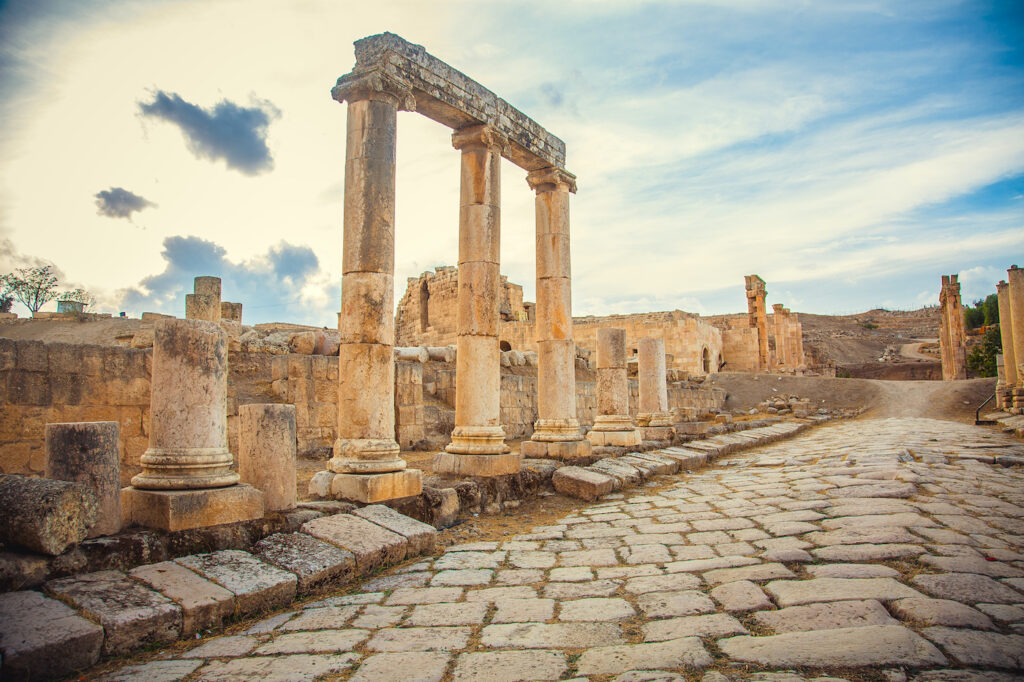By most measures Patrick Deneen’s 2018 book Why Liberalism Failed was an astonishing success. It won admiration from thinkers on the left and the right, from President Obama to the integralist curmudgeon of Harvard Law School, and it almost singlehandedly put postliberalism as a movement on the map.
The popularity of the book on the right was a cause of both surprise and alarm. Surprise, because Deneen had made the same argument in First Things in 2012 without so much fanfare, and because his account of liberalism was not new. Alarm, because despite substantial criticism to which he never fully responded, Deneen redoubled his attack on the principles of the American founding. He thus helped undermine a path of patriotic resistance to progressive despotism just as it was turning in a disturbingly illiberal direction.
A second and broader criticism of Why Liberalism Failed was Deneen’s antipolitical localist remedy for the depredations of liberalism. In his otherwise fulsome review, Adrian Vermeule took Deneen to task for asserting that a postliberal politics must “avoid the temptation to replace one ideology with another. Politics and human community must percolate from the bottom up, from experience and practice.” Vermeule argued that a genuine postliberal politics requires “a comprehensive theory to beat a comprehensive theory,” and that, far from retreating from politics, it must seek to “occupy the commanding heights of the administrative state” and turn it to “new ends, becoming the great instrument with which to restore a substantive politics of the good.”
Just as Why Liberalism Failed was previewed in a First Things article, so Deneen’s most recent book Regime Change: Toward a Postliberal Future was previewed in a First Things lecture in 2019. The title of the lecture, “Aristopopulism: A Political Proposal for America” hinted at Deneen’s intention to remedy the defect of Why Liberalism Failed by providing a real postliberal alternative to American liberalism. There Deneen made clear that Vermeule had helped cure him of his Benedict Option antipolitical localism and persuaded him to become an advocate for energetic national government. “I think Adrian [Vermeule] will be very excited by my talk tonight,” he said. “He will conclude that I have finally come around, that we need Schmittian and Machiavellian assertion of power to assert the will of those who should be the good guys.” Deneen described his proposal as a “reassertion of politics,” using “Machiavellian means for Aristotelian ends” (a phrase he repeats in his book). The reversal is shocking, although it would not have surprised Thomas More, who revealed the mysterious link between idealism and cynicism in his Utopia.
Start your day with Public Discourse
Sign up and get our daily essays sent straight to your inbox.The Basic Argument
The basic thesis of the book is this: every human society is necessarily composed of “the few” (the aristoi) and the “many” (the populi), two classes with different strengths and weaknesses. (Deneen does not explore the basis for this claim.) The basic strategy of preliberal Aristotelian politics is to promote a complementary mixture of the few and the many, Aristotle’s “mixed regime” or “polity,” in which each class benefits the other and is prevented from exploiting the other. Thus Deneen’s neologism “Aristopopulism,” with its play on both aristoi and Aristotle.
The modern political project of “Liberalism” (this includes classical liberalism, progressivism, and Marxism) pits the many against the few for the sake of “transformative progress.” Whatever its form, liberalism is intrinsically disruptive and oppositional, and always exists at the expense of the many.
The “postliberal” remedy for this state of affairs is what Deneen calls “Common-Good Conservatism,” which he describes as a “rediscovery and updating of the ancient tradition of the ‘mixed constitution.’” To this end, Deneen calls for “a new elite . . . dedicated to the promotion and construction of a society that assists ordinary fellow citizens in achieving lives of flourishing.” The result is a regime that is “left-economic and social-conservative.”
Whether conservatives sympathetic to his earlier critique will have the intestinal fortitude to swallow both his red pill and his blue pill is another matter.
For different reasons, both conservatives and liberals will wonder whether such a fusion of traditionalism and economic leftism is coherent, sustainable, or desirable. To his credit, Deneen often hedges his arguments just enough (and just in time) to prevent easy targets, but his overall project to commandeer the administrative state for leftist economic and social conservative ends is clear. Whether conservatives sympathetic to his earlier critique will have the intestinal fortitude to swallow both his red pill and his blue pill is another matter.
Progressivism
Characteristically Deneen ignores the classical aristocratic elements in the American Founding. As Publius writes in Federalist 57, “The aim of every political constitution is, or ought to be, first to obtain for rulers men who possess most wisdom to discern, and most virtue to pursue, the common good of the society.” And in practice, Deneen omits the addendum: “And in the next place, to take the most effectual precautions for keeping them virtuous whilst they continue to hold their public trust.” These two principles are the key to understanding the aim of the American founders’ constitutional design: to provide good government, and to prevent bad government. Strangely for a book bearing the title Regime Change, Deneen is largely silent about political institutions. Instead, he focuses on personal beliefs and actions.
Deneen gives an unsparing critique of progressivism. Drawing on a wide body of literature, including James Burnham, Christopher Lasch, Michael Lind, Charles Murray, and Tim Carney, he details how a placeless, homogeneous, privileged, credentialed, managerial elite has leveraged its tremendous political and financial power to attack the practices and beliefs that are proven conditions for human flourishing, such as religion, tradition, loyalty, and intact biological marriage. As a result the working class is “far more likely to exhibit various measures of social pathologies” and disadvantages such as “divorce, nonmarriage, out-of-wedlock childbirth, crime, addiction, un- and underemployment, bankruptcy, disintegrating social networks, and declining religiosity and moral formation” than are elites. “People in these classes,” Deneen observes, “have experienced the first decrease in the average life expectancy of any American generation, a consequence of these choices now increasingly described as ‘deaths of despair.’”
His devastating narration of the progressive political and corporate mobilizations against Indiana’s Religious Freedom Restoration Act in 2015, and especially against the small, family-owned Memories Pizza, is still shocking to read.
The progressive elite operates under a “veil of self-deception,” which at times looks like straight hypocrisy. His devastating narration of the progressive political and corporate mobilizations against Indiana’s Religious Freedom Restoration Act in 2015, and especially against the small, family-owned Memories Pizza, is still shocking to read. Professing to be defenders of equality, progressive elites despise and fear the working class, the “unwashed masses,” Hillary Clinton’s “basket of deplorables” who, according to Barack Obama, “cling to guns or religion.”
Classical Liberalism
While Deneen’s attack on progressivism is blistering, his ideological caricature of classical liberalism, especially in its American form, increasingly looks performative rather than substantive. Deneen and his small coterie of postliberal friends have created a profitable cottage industry by attacking their potential allies with straw man arguments.
Too often the conservative targets of the postliberals’ ideological attack have allowed themselves to get drawn into semantic debates with postliberals on the meaning of the word “liberalism” rather than engaging in concrete discussion of the requirements for the common good. What would happen if we dropped that charged word “liberalism” from the conversation and got down to specifics? I suspect much of Deneen’s postliberal magic would disappear.
In Deneen’s telling, American conservatives are really liberal individualists who privilege liberty over the common good. At one point he singles out Ryan Anderson and Robert George, whom he calls “Right liberals,” for leaving “intact the basic principle that the good must be a matter of private or subpolitical civic concern.” Yet if Deneen could get past his allergic reaction to the word “liberalism,” he would have noticed in the essay he cites that Anderson and George specifically repudiate “neutralist liberalism” and draw on “the Aristotelian-Thomistic moral tradition” to defend a “perfectionist” political theory dedicated to the common good and human flourishing.
The goal of classical liberalism is to forge a natural link between status and actual service to others by eliminating arbitrary and unjust aristocratic and feudal privileges and barriers, and to promote and protect information that can only emerge from the ground up, through spontaneous and largely self-regulating orders like language, markets, and scientific inquiry.
Again, Deneen accuses classical liberals of seeking “to promote a new elite that would advance economic progress” through the “creative destruction” of local custom and tradition. This is a tendentious description. The goal of classical liberalism is to forge a natural link between status and actual service to others by eliminating arbitrary and unjust aristocratic and feudal privileges and barriers, and to promote and protect information that can only emerge from the ground up, through spontaneous and largely self-regulating orders like language, markets, and scientific inquiry. F. A. Hayek, a frequent target of postliberals, is expressing the view of classical liberalism when he writes:
There probably never has existed a genuine belief in freedom, and there has certainly been no successful attempt to operate a free society, without a genuine reverence for grown institutions, for customs and habits and “all those securities for liberty which arise from regulation of long prescriptions and ancient ways.” Paradoxical as it may appear, it is probably true that a successful free society will always in a large measure be a tradition-bound society.
The American founders’ classical liberalism is much more congenial to Deneen’s postliberal project than he knows. But there are notable tensions between them. Here I will consider three: the administrative state, the free market, and religion and politics.
The Administrative State
Deneen writes eloquently against the educational and social system that supports the administrative state, including heavily subsidized research universities that provide the credentialed, specialized, and allegedly nonpartisan “experts” for progressive government. (Remarkably, he calls for an increase in public funding to the same schools.) He also criticizes the progressive weaponization of the administrative state to promote expressive individualism and identity politics. But he says nothing about administrative government itself, the institutional arrangement that employs several million unelected and largely unaccountable bureaucrats to generate a staggering number of expensive and enervating rules touching almost every domain of human life.
If there is a case for “regime change,” dismantling the administrative state is surely it. Instead of knocking down libertarian straw men, it would be refreshing to see Deneen and other postliberals engage the serious arguments in Michael Pennington’s underappreciated Robust Political Economy (comparing strategies of “voice” and “exit” for achieving the common good) or Hayek’s magisterial Law, Liberty, and Legislation (comparing cosmos and taxis as strategies of social order) or even (or especially!) John Paul II’s nuanced defense of the free market and economic liberty within an “authentic ‘human ecology,’” as well as his warning against “the social assistance state,” in Centesimus Annus.
Instead, Deneen’s roar for “regime change” arrives with a whimper. Rather than advocating a genuinely Tocquevillian alternative to the soul-crushing administrative state, he writes in his Introduction that “existing political forms can remain in place, so long as a fundamentally different ethos informs those institutions,” and that “while superficially the same political order, the replacement of rule by a progressive elite by a regime ordered to the common good through a ‘mixed constitution’ will constitute a genuine regime change.” Instead of calling for the devolution of national power to the states and intermediary institutions, Deneen proposes increasing the size of Congress to one thousand members and mandating national service. Is this really the radical alternative Deneen’s young conservative postliberal followers are looking for?
The Free Market
A second and related difference between Deneen and American conservatism concerns economics. According to Deneen, the earliest classical liberals “believed especially that economic progress through an ever freer and more expansive market could fuel a transformative social and political order in which grown prosperity would always outstrip economic discontents.” “It was held as an article of faith,” Deneen continues, “that the inequality and resulting discontents generated by the new capitalist economic system would be compensated by a ‘rising tide’ of prosperity.”
It is doubtful any classical liberal subscribed to Deneen’s “articles of faith,” but it is true that the free market ushered in by classical liberalism aspired to, and did, vastly improve the material conditions of human beings, including the working class. As one recent Wall Street Journal article summarizes some of the data:
Between 1870 and 1900 … real wages of non-farm employees grew by 53%, and life’s staples, such as food, clothing and shelter, became more plentiful and much cheaper. Food prices plummeted by 174%, and the cost of textiles, fuel and home furnishings fell by 70%, 65%, and 70%, respectively. The illiteracy rate fell by 46% and life expectancy rose by 12.5%. Infant mortality declined by 17%.
Deneen has nothing good to say about this.
It is also true that the free market has transformed society, for good and for ill. Deneen focuses exclusively on the ill. He shows no sensitivity to the complexity of the issues, none of the insight and nuance that are the sources of Tocqueville’s greatness and a principal subject of conservative reflection and argument. He bluntly advocates “economic boundaries, protection of national industries, greater worker protections, more muscular prevention and even dismantling of monopolistic concentrations of economic power,” without any mention of the well-known risks and predictable results of these policies, including lost opportunity costs, rent seeking, capture, dependence, crowding-out effects, government failure, and more. He acknowledges that these policies will undermine economic growth, but seems to regard this as a virtue. Deneen frequently appeals to Edmund Burke, but fails to mention that Burke was a strong advocate of economic liberty and would have been horrified by Deneen’s economic proposals.
Coming from the cushy armchair of corporate-financed elite academic institutions where Deneen has spent his entire professional career, this is hard to take. There is an important conversation to be had on morality and markets, especially in the light of woke capitalism, but it will require removing ideological blinders.
Religion and Politics
Finally, readers will want to know how much Deneen has shifted toward the integralism of his Catholic postliberal friends who believe temporal authority (i.e., political authority) should be subject to spiritual authority (i.e., the Pope). The last chapter of his book bears the coy title “Toward Integration.” It is for the most part a thoughtful reflection on harmful disintegrative forces within modern society and a call for virtues like humility, hope, and memory, and cultural practices that sustain unity, cooperation, and community.
But in the last section of this last chapter he turns to religion. Strangely, he sets this section up with a criticism of “national conservatism,” rightly warning that “conservatives should be wary simply of occupying the space recently vacated by [globalist] progressives and concluding that this is therefore inherently conservative.” It is somewhat surprising, then, that in the next section he attacks “the most fateful and fundamental ‘separation’: the so-called ‘separation of Church and State.’” But what follows is vague and confusing.
The generic view of religion and politics that Deneen promotes is virtually the same view that conservatives have been insisting for decades is the traditional and proper constitutional American view.
First, Deneen presents a false dichotomy by framing the issue as a debate between liberal defenders of liberty and postliberal defenders of the common good. But most American conservatives believe in both religious liberty and the common good. And in fact, Deneen does not say anything about restricting religious liberty. Thus far he has not followed his friend Vermeule down this path.
Moreover, when he gets to the substance of the common good, he speaks in terms of “the conditions for the enjoyment of the goods of human life” (italics mine), rather than in terms of the substantive achievement of those goods. But this is exactly how John Finnis, Robert George, Ryan Anderson, and indeed the Catechism of the Catholic Church describe the political common good.
Finally, the generic view of religion and politics that Deneen promotes is virtually the same view that conservatives have been insisting for decades is the traditional and proper constitutional American view.
In the end Deneen is to be commended for following his critique of liberalism with a postliberal alternative. But I suspect many of Deneen’s conservative admirers will find themselves looking for another—doubtless very different—postliberalism. Who knows? Perhaps to their surprise they will find themselves at home in the real common-good American conservatism that was there for them all along, waiting to be recovered, developed, and defended.














